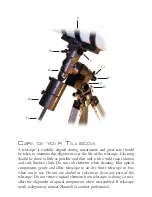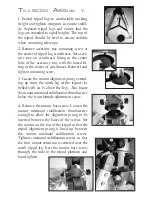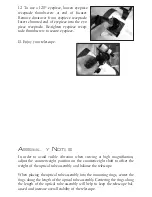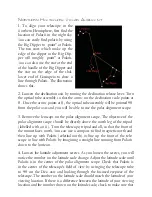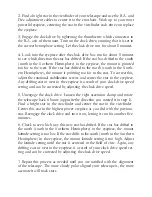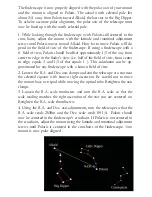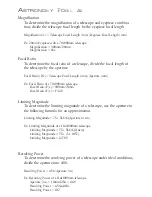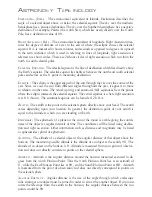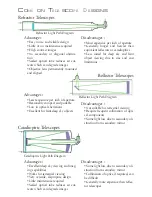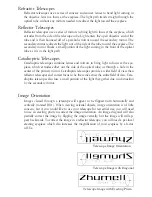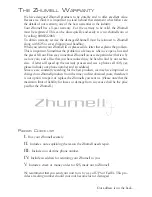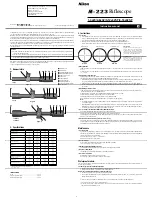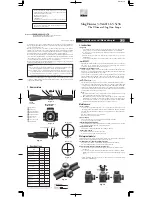
U
SING
THE
C
LOCK
D
RIVE
The clock drive included with your telescope is designed to track the move-
ment of stars. It will help keep stars in your field of view during long periods
of viewing as long as the telescope is properly polar aligned and the clock
drive is properly used. Do not be alarmed if you turn on the clock drive and
do not see the telescope moving. Stars appear to move very slowly and the
telescope may not apear to move over a short period of time. To see if your
clock drive is working, aim the telescope at a stationary terrestrial object and
engage the clock drive. Let the clock drive run for 10 to 15 minutes. If the
object you had originally aimed the telescope at appears to have moved when
looking through the eyepiece of the telescope, the clock drive is working.
C
LOCK
D
RIVE
S
ETTINGS
The clock drive features two sets of controls which can be used to control
the motion of the telescope The power switch doubles as the hemisphere set-
ting. If you are using the telescope in the Northern Hemisphere, the switch
should be set to the upper position, in the Southern Hemisphere, the switch
should be set to the lower position. The speed setting should be adjusted
while viewing to help keep stars centered in the field of view. You may have
to increase or decrease your speed setting if stars appear to drift in your field
of view. You will need to adjust the clock drive based on what you are look-
ing at while viewing. As a general rule, the farther away from the celestial
pole (closer to the horizon) an object that you are viewing is, the faster it will
appear to move and the faster the clock drive speed will need to be set.
M
ANUAL
A
DJUSTMENT
WITH
C
LOCK
D
RIVE
The clock drive included with your telescope should only be used to follow
stars. When you would like to point your telescope at a different celestial
object, you must disengage the clock drive. By loosening the thumbscrew
on the clock drive R.A. axis, you will disengage the clock drive, protecting
the clock drive and making manual adjustment easier. Manually adjusting the
R.A. axis with the clock drive engaged may cause the gearing in the clock
drive to strip, compromising the operation of the clock drive. When you
would like to reengage the clock drive, simply tighten the thumbscrew and
use the clock drive hand controller to begin tracking stars.
Summary of Contents for Tycho
Page 1: ...TYCHO 254 ...





